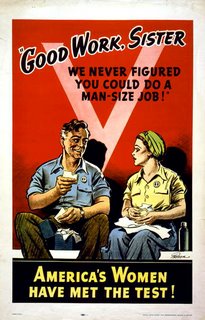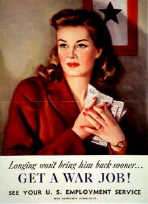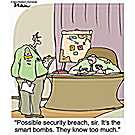Some One Had Blundered---Fear Makes You Panic
It does not demand much reading to know that German and Japanese soldier were more well-prepared psychologically than their British and American opponents.
The whole social system of Nazi Germany were based on the need of war and they do not need much persuasion to go to war or die for their fatherland and their Fuehrer.
Japanese soldiers, were educated under the belief that nothing is better than the death on battlefield for the Emperor, and also, nothing is more humiliating than surrender.
During WWII, Chinese soldiers experienced a great shift from coward to fearless, especially after the Rape of Nanjing happened, in which Japanese Army, after conquered the then capital of China, killed literally everyone in the city including POWs and civilians, including women and children as well. (The Rape of Nanjing http://www.tribo.org/nanking/background.html or http://www.centurychina.com/wiihist/njmassac/index.html)
On the contrary, American and British soldiers were more like be "drafted" or "cheated" in the War without much psychological preparation for it. Mainstream fictions and movies covering WWII always portrait Allied soldiers as fearless, full of confidence and very experienced with their work. But in reality, that is not the truth.
In "Someone Had Blundered", we can easily find out that nobody, can actually be fearless. And due to the fear of death, people will not have enough courage to make sure that their action follows the rules of war. And in addition to that, Allied soldiers did not have enough training to let them react properly during the war.
Fussell described several categories of blunders allied soldiers made. And "friendly fire" were actually the one that intrigue me the most. If soldiers were so horrified during the war, how can you expect them to first judge the identity of incoming fire, objects, and person, then aim well, and fire at the target? I can not remember the exact statistics, but during the whole war, by every several ten-thousand bullets, there were only one soldier got shot. And during Vietnam War, the rate were even worse--on every some twenty-thousand bullets, there was one soldier shot.
If fear decides how well soldiers can perform during the war, it is not hard to tell something from those statistics mentioned above.








